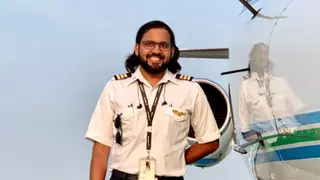With more than 200 Covid-19 vaccine candidates in different stages of clinical and pre-clinical testing, there is still no guarantee that any single vaccine now in development will work, said World Health Organization Director General Tedros Adhanom Ghebreyesus.
“The history of vaccine development tells us that some will fail, and some will succeed,” he said, in a week that saw three top Covid-19 vaccine contenders reveal their “blueprint”, responding to calls from the scientific community for greater transparency.
“The more candidates we test, the higher the chance we will have a safe and efficacious vaccine,” he added, before outlining details on different funding commitments to tackle the pandemic and the challenges that continue to loom large.
The fastest route to ending the pandemic and accelerating global economic recovery is “to ensure some people are vaccinated in all countries, not all people in some countries,” he said. The aim is to have 2 billion doses of vaccine available by end 2021.
Funding shortfalls
Currently, $3 billion have been invested in the ACT Accelerator; only a tenth of the remaining $35 billion needed to scale-up and impact. About $15 billion is needed immediately to maintain momentum and stay on track, he said. The ACT Accelerator was set up in April by the WHO, the European Commission and partners, to speed up development and manufacturing of vaccines, diagnostics and therapeutics – and to ensure fair and equitable access for all countries.
And the vaccines pillar of this effort, the COVAX Facility (that includes several international organisations) helms the globally-coordinated vaccine rollout for the greatest possible impact.
“Our challenge now is to take the tremendous promise of the ACT Accelerator and COVAX to scale,” he said, calling on countries to increase their political and financial commitment.
“Our estimates suggest that once an effective vaccine has been distributed, and international travel and trade is fully restored, the economic gains will far outweigh the 38 billion dollar investment required for the ACT Accelerator,” he added.
Covax commitments
Meanwhile, the WHO said, 64 higher income economies have now joined the COVAX Facility and another 38 economies were expected to sign-up in the coming days. These self-financing economies, include 29 from ‘Team Europe’ participating as part of an agreement with the European Commission and they join 92 lower income economies eligible for financial support through the Gavi COVAX Advance Market Commitment, the note said.
“This means a total of 156 economies, representing nearly two-thirds of the global population, are now committed to or eligible to receive vaccines through the Facility,” it added.
“COVAX is now in business,” said Seth Berkley, CEO of Gavi, the Vaccine Alliance, who coordinates the COVAX Facility, indicating that Governments had come forward to secure vaccines for their citizens and for vulnerable populations in parts of the world.
Efforts will get underway to further raise funds for both research and development and for the procurement of vaccines for lower-income countries via the Gavi COVAX AMC, the note said.
Governments, vaccine manufacturers, organisations and individuals have committed $1.4 billion towards vaccine R&D so far, but a further $700-800 million is urgently needed to continue to move the portfolio forward in addition to $ 300 million to fund WHO’s SOLIDARITY trial.
The Gavi COVAX AMC has raised around $700 million from sovereign donors, philanthropy, private sector etc against an initial target of $ 2 billion in seed funding needed by this year-end. Funding the Gavi COVAX AMC was critical to ensuring ability to pay was not a barrier to accessing Covid-19 vaccines, a situation which would leave the majority of the world unprotected, with the pandemic and its impact continuing unabated, the note said.






Comments
Comments have to be in English, and in full sentences. They cannot be abusive or personal. Please abide by our community guidelines for posting your comments.
We have migrated to a new commenting platform. If you are already a registered user of TheHindu Businessline and logged in, you may continue to engage with our articles. If you do not have an account please register and login to post comments. Users can access their older comments by logging into their accounts on Vuukle.